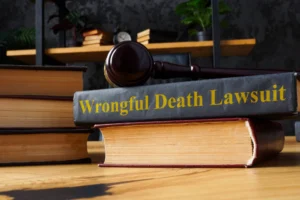When you are facing a federal investigation or federal criminal charges, the evidence brought against you is often the cornerstone of the case. However, not all evidence the government tries to use is gathered lawfully.
The U.S. Constitution places strict limits on how law enforcement can obtain and present evidence in court. If your federal case involves illegally obtained evidence, your freedom and your future may depend on whether or not your attorney can challenge and suppress that evidence. This article explores what kinds of evidence cannot be used in court, what happens when it is obtained unlawfully, and the steps your defense attorney can take to protect you.
If you or a loved one is facing federal charges and suspects that illegally obtained evidence is being used against you, reach out to Guzman Law Firm. Our team has the experience, skill, and determination to fight back against government overreach and defend your constitutional rights.
Call an experienced federal defense lawyer from Guzman Law Firm today: (956) 516-7198.
What kind of evidence cannot be used in court?
Not every piece of evidence that prosecutors want to use is legally admissible. In the United States, the Fourth Amendment to the Constitution protects individuals from “unreasonable searches and seizures.” This means law enforcement must follow proper legal procedures when collecting evidence, such as obtaining a valid search warrant supported by probable cause. If they cut corners, the evidence gathered may be barred from trial.
Examples of evidence that may be excluded include:
- Evidence obtained without a warrant: For instance, if officers enter your home or office without a valid warrant or without your consent, anything they seize may be deemed inadmissible.
- Evidence obtained through an unlawful search or seizure: Even if officers have a warrant, if it is too broad, expired, or not properly executed, the evidence could be excluded.
- Statements made without proper Miranda warnings: If law enforcement fails to advise you of your rights during a custodial interrogation, your statements may be suppressed.
- Evidence gathered through coercion or misconduct: Confessions obtained under duress, threats, or violence are inadmissible.
- Evidence with a broken chain of custody: If evidence is mishandled, tampered with, or not properly documented, it can be challenged.
How can I know if evidence was obtained illegally?
Determining whether evidence was obtained unlawfully is not always straightforward. Law enforcement often frames their actions as legal, even when they may not be. Here are some signs that your rights may have been violated:
- You were searched without being shown a warrant
- You were pressured or coerced into giving consent to a search
- Officers searched areas beyond what a warrant specifically allowed
- You were not read your Miranda rights before questioning
- Evidence appeared suddenly without an explanation of how it was found
Because these issues involve constitutional law and detailed case precedent, the best way to know for sure is to work with an experienced federal defense attorney. A skilled lawyer can review the circumstances of your case, examine warrants, evaluate how searches were conducted, and determine whether there are grounds to challenge the government’s evidence.
What happens if evidence is obtained illegally?
If evidence is obtained illegally, it does not automatically disappear from your case. Instead, your attorney must file a formal request with the court to have it excluded. This is where understanding legal tools like motions to suppress, the exclusionary rule, and the fruit of the poisonous tree doctrine becomes critical.
What is a motion to suppress illegally obtained evidence?
A motion to suppress is a formal request filed by your defense attorney asking the court to exclude evidence that was obtained in violation of your constitutional rights. In federal court, this often happens before trial during pretrial hearings. Your attorney will present arguments, backed by case law and constitutional principles, showing why the evidence should not be allowed.
If successful, the evidence cannot be used by prosecutors during trial. In some cases, this can significantly weaken the government’s case — sometimes to the point where charges must be reduced or dismissed altogether.
What is the exclusionary rule in simple terms?
The exclusionary rule is the legal principle that evidence obtained in violation of your constitutional rights cannot be used in court. Think of it as a safeguard that keeps law enforcement accountable. If officers overstep their authority, they cannot benefit from their misconduct by using the evidence they collected unlawfully.
This rule exists to protect defendants, but also to discourage police and federal agents from ignoring the law in pursuit of convictions.
What is the “fruit of the poisonous tree” doctrine?
The fruit of the poisonous tree doctrine is an extension of the exclusionary rule. It means that not only is illegally obtained evidence inadmissible, but so is any evidence that stems from it.
| For example… |
| If law enforcement conducts an illegal search of your phone and finds messages leading them to another piece of evidence, both the phone evidence and the later discovery may be excluded. |
| If police illegally obtain a confession and that confession leads them to physical evidence, the physical evidence may also be suppressed. |
The doctrine ensures that prosecutors cannot build a case based on the results of unlawful government action.
What are the legal consequences if evidence is not handled properly?
Even if evidence is lawfully obtained, it must also be handled correctly throughout the entire judicial process. The legal system has strict rules to prevent tampering, loss, or contamination of evidence. When evidence is mishandled, it can create serious problems for prosecutors and opportunities for the defense.
Some common mishandling issues include:
- Broken chain of custody: Each piece of evidence must be documented at every stage, from collection to storage to presentation in court. If there are gaps in the record, it raises doubts about whether the evidence is authentic or tampered with.
- Improper storage: Physical evidence, such as DNA, drugs, or firearms, must be preserved correctly. Failure to do so can compromise its reliability.
- Tampering or alteration: If there is any indication that evidence has been altered, planted, or falsified, it can be challenged.
- Delayed disclosure: Prosecutors are required to share evidence with the defense. If they withhold key evidence, it may result in sanctions or dismissal.
The consequences of mishandled evidence can be significant. Judges may rule that the evidence is inadmissible, juries may lose confidence in the prosecution’s case, and in some situations, the entire case may collapse. For defendants, this can mean reduced charges, dismissal, or acquittal.
Facing federal charges? Call Guzman Law Firm for a strong defense.
Illegally obtained evidence is not just a technicality; it is a fundamental issue of fairness and constitutional rights. If the government has violated your rights by gathering evidence unlawfully or mishandling it, that evidence may not be admissible against you. But protecting those rights takes proactive and skilled legal defense.
At Guzman Law Firm, we know how to spot constitutional violations and fight aggressively to keep unlawful evidence out of court. From filing motions to suppress to challenging the government’s chain of custody, Attorney Javier Guzman will leave no stone unturned in defending our clients. Federal prosecutors will use every tool at their disposal, and you deserve a defense that is just as relentless.
If you are under federal investigation or facing federal criminal charges, do not wait. Contact Guzman Law Firm today online, or by phone at (956) 516-7198, to discuss your case and learn how we can fight for your rights, your freedom, and your future.
More Helpful Articles by Guzman Law Firm:
- Border Checkpoints in Texas: What Are Your Rights?
- When Smuggling Becomes Trafficking
- How Texas Law Treats Driver Fatigue in Commercial Vehicle Accidents
- What to Do if You’re Caught in a Border Sting Operation
- Why You Can Still Face Drug Conspiracy Charges without Possessing Drugs





